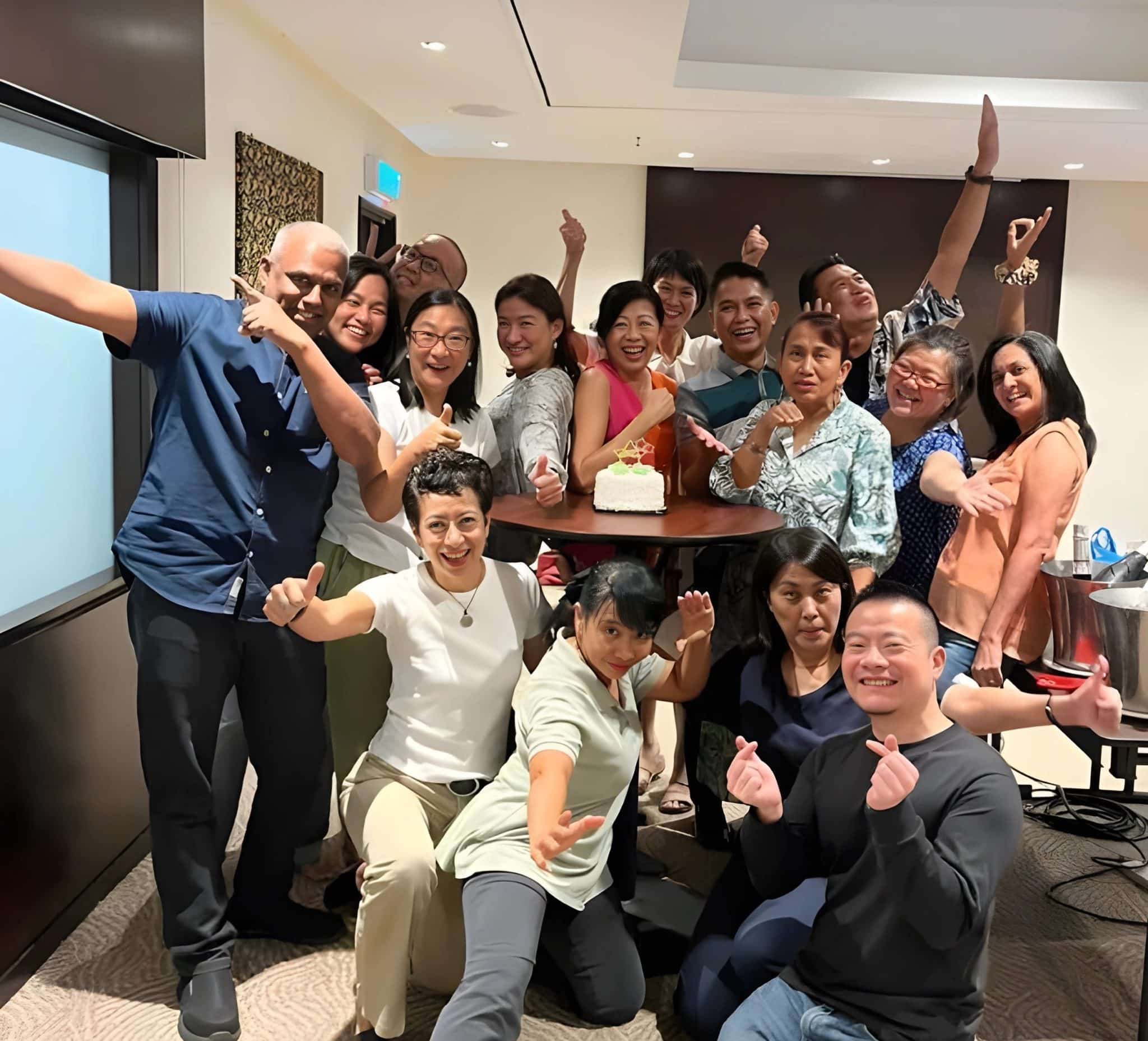
Dear Salt&Light,
I am a mid-level management consultant who clocks over 70-80 hours a week. That means I am unable to take part in any ministry work, go for service faithfully on Sundays, or even meet up with cell mates every fortnightly. I still set aside about half an hour every morning to do my daily devotions, I pray throughout the day, and I try to live out the Gospel at work in terms of my demeanour around people. My colleagues know that I am a Christian.
I stand by the belief that as believer, we embody the Church. Yet, I feel like I have no Christian community to fall back on and I’m all alone in my walk with God. How can I fix the situation?
Linus E, 38, management consultant
I completely understand. Unfortunately, this kind of situation is only becoming more prevalent in the corporate world, especially in Asia, where the pace is only getting faster, locking people in a perpetual race.
So how does the Christian life fit into this reality?
Believe it or not, there are certain jobs or sectors that are not as appropriate for believers.
The obvious ones are those that are morally questionable. But even those that are not require careful consideration. Christian values tell us that every facet of our lives must align with God’s purposes. For example, a job that is paid well but takes you away from your family 80% of the time, compromising your ability to be a present parent and a supportive spouse, would not be God-honouring.
Granted, there is no such thing as a perfect job, but there is a spectrum of more and less appropriate ones.
My background is in advertising and my job definitely fell into the “less appropriate” category.
That’s not to say that Christians should not be in advertising but there are things to consider.
To “fix the situation”, as you say, will not be one quick decision. It takes an open line of communication with God and an intentional posture of discernment.
I encourage you to consider the following:
1. Your identity
As a believer, what is your view of work as it relates to your faith?
Every aspect of a Christian’s life is meant to be worship, so how is your work an act of worship to God? As a Christian, how you view the purpose of work will dictate what you look for in a job, your reasons to stay, and your rationale to leave.
Remember that the title “Christian” identifies what you are and a job title identifies what you do. It’s often easy to mix up the two or even make the “doing” more important than the “being”.
Are you a Christ-follower who just happens to be a consultant or a consultant that just happens to be a Christ-follower?
In bouts of stress, you may feel stuck – as if you don’t have a choice to be there, your job is happening to you, and you’ve lost control over your life.
But by rooting your identity first and foremost in Christ, you put the power and control back where it belongs. When something happens, you will be more responding and less reacting.
The answers to this first part will help you see more clearly how work fits into your Christian walk and vice versa.
2. Your purpose
Why does God want you in this particular job right now?
A job has to be about more than the money, and even more so for believers, as we aim to live life for Kingdom purposes. So what is it that God has purposed for you, at this job, in this season?
Is there something to learn, skills to hone, perspectives to broaden, relationships to build, or opportunities to witness for Christ?
Fact: Not all of us will have jobs that we are incredibly passionate about.
For those that do, those jobs become careers we labour at with love. For others, our passions live outside of work.
But passion or not, God has purposed something in our particular jobs and it is our responsibility as Christians to steward that purpose well.
Consider what you are working towards in this job. Don’t just show up and go through the motions.
Work towards something, even if it’s vague, so that you are not aimlessly plowing away.
Ask God why you’re there, own it, and show up with intention.
Consider what you want to take away when you leave. “Surviving the next 14 hours” cannot be your daily goal.
Only in continually learning will you be ready and worthy of the next step. It’s less about the promotion and more about how God wants you to grow in your career and as a person.
Knowing your purpose for this season will refine your expectations about your current job. You can then think about the third part.
3. Your season
How long should you plan to be here?
Whether you are passionate about your job or not, it has to be sustainable and especially in high intensity jobs, you need a cutoff point. Whether it’s by time, achievement, or life stage, the season will come to an end, hopefully having accomplished the purpose.
The Bible talks about man planning his way but the Lord directing his steps (Proverbs 16:9) and the need to count the cost of following Christ (Luke 14).
We have a responsibility to prayerfully think through where we’re going and what it’ll take. As we move ahead, we remain open to the Holy Spirit to guide and direct.
Take ownership of your part in this.
Many people find it easier to abdicate the decisions of their career to whatever happens in their company or environment, “well, if the company decides to do this, maybe I’ll do this” or “if they promote me, I guess I’ll stay”.
That’s not taking ownership.
Your work is worship to God. Your vocation is a way of using your skills to bless the world. Taking ownership means that God’s plans and purposes lead your work direction, not the company, your colleagues, or your boss.
Seeing this period of time with some – even if not specific – end in sight will motivate and encourage you to make the most of the present.
Reality is that you don’t have a lot of free time right now but grappling with these questions is worth making time for. God’s revelation to you in these areas will become the anchors in your heart, mind, and spirit as you navigate.
There is no perfect solution or instant answer, but know that “your labour in the Lord is not in vain”. (1 Corinthians 15:58)
To submit an Ask Salt&Light question, please email [email protected], with “Ask Salt&Light” in the subject heading. Please add your name, age and profession.
While we will try our best to seek answers for your questions, Salt&Light reserves the right to select, reject or modify any submissions.
We are an independent, non-profit organisation that relies on the generosity of our readers, such as yourself, to continue serving the kingdom. Every dollar donated goes directly back into our editorial coverage.
Would you consider partnering with us in our kingdom work by supporting us financially, either as a one-off donation, or a recurring pledge?
Support Salt&Light



